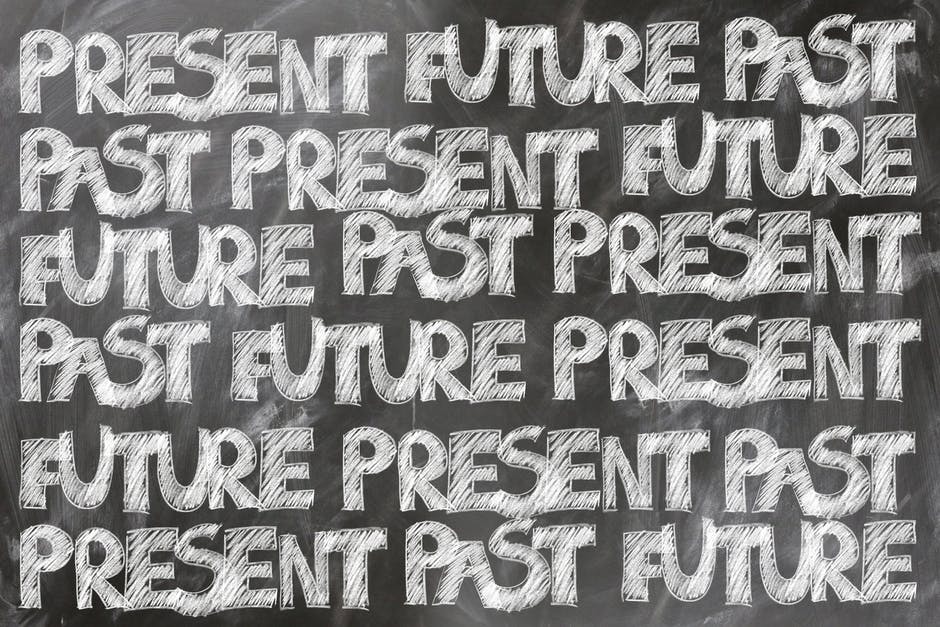10 Thoughts that Can Destroy Relationships

Along with communication problems, negative, insecure thoughts are also the root of what breaks relationships. Psychologist Jeffrey Bernstein states that while it’s crucial for both partners to develop listening skills and learn to hear each other out by reflecting on the needs of their significant other, he also points out the underlying toxic thoughts we often keep to ourselves that aren’t openly talked about enough. Although challenges can’t be worked out in a single night and take time to be resolved in order to progress into the healthy strong relationships we yearn for, the first step is to be cognizant about the way you think about your partner. Psych2Go shares with you 10 thoughts that can destroy relationships:

1. He or she doesn’t love me anymore.
Although it’s reasonable to worry when your significant other begins to invest less time in your relationship, constantly asking them whether or not they love you anymore can stir up a lot of conflict based on insecurity. Professor Pepper Schwartz of sociology at the University of Washington states, “It can create what psychologists call a self-fulfilling prophecy. Even though the partner might protest and say ‘of course I do,’ asking might make them start to wonder if there’s cause for concern.” Jumping to this strong conclusion based on one action that may not even be caused from disinterest can eventually turn into a reality if your partner begins to feel overwhelmed by your constant need to validate the love between you two. Instead of immediately swinging to this thought and automatically assuming that your partner doesn’t care about the relationship anymore, communicate about the concerns you have and work on a way of establishing more closeness together.

2. The “should” bomb
It is toxic to believe that your partner should just automatically know what you are thinking. Remember that no one has the power to mind read. Having thoughts, such as, “She should know how much it bothers me when she leaves me for a while at parties to talk to new people,” or “He should know that this day is important to me,” without having actually discussed those concerns with your partner isn’t fair. How do you expect them to truly understand how you feel when you never honestly voiced the frustrations, anger, or disappointment you have experienced? Let your guard down and refrain from pretending like you are okay with something when it actually bothers you. But more importantly, let your partner in on those feelings.

3. The blame game
It’s so easy to point fingers and blame the other person when you’re upset. Having thoughts like, “It’s his fault that I’m having a bad day,” or “It’s her fault that we’re in this mess right now,” only postpones room for improvement in your relationship. Instead, try to take some ownership and responsibility of the situation that’s bothering you. Apologize for something you did or said that might have upset your partner, which may in turn have influenced them to say or do something that hurt you in return. We cannot predict or control what the other person will do, but we can control how we react towards the situation.

4. Overactive imagination
This occurs when you jump to conclusions about your partner that aren’t based on actual evidence. For instance, if your partner has been coming home later from work lately and they tell you it’s because they’ve been busier, but you assume that they are having an affair, you can’t actually back up that argument without proof. Perhaps you have these thoughts and let your imagination get the best of you from a previous relationship conflict, but it isn’t fair to your partner when you project those same toxic ideas onto them. In this case, you’re weighing them down with your own insecure baggage from the past. It’s important to see your partner for who they are and learn not to blow those perceptions out of proportion.

5. Comparing and contrasting
When you start to compare your partner to the ideal person you want to date, you’re placing unrealistic expectations on them. For example, perhaps you met your best friend’s boyfriend, witnessed an action you saw him do, and wished that your own boyfriend did the same thing or you might reminisce about an old relationship you had and start comparing that relationship to your current one. It’s important to respect who your partner is and understand that they will never be Mr. or Ms. Perfect. It’s also unhealthy to put that sort of pressure onto them in the first place. Marriage and family counselor Leslie Petruck in Charlotte, North Carolina states, “If there are qualities or traits that you admire in someone else, then let your partner know you wish they did more of that and find out if it’s something they are willing or want to change.”

6. Fantasizing
Sometimes, on your bad days with your partner, you might find yourself fantasizing what it would be like to be with someone else. But, if you begin to have those thoughts more often than usual, you’ll prioritize those possibilities rather than working on the relationship between you and your partner. Remember that anything real worth having isn’t smooth or easy, and entertaining the what-if’s with someone else won’t prevent you from experiencing similar conflicts in the future. The grass isn’t always greener on the other side, unless you’re in a toxic relationship. There’s a difference between a relationship that won’t ever work and a relationship that can work and grow with extra effort.

7. The all-or-nothing trap
This is when you see your partner in very black and white terms. You might see your partner as someone who can do no right or no wrong. Perhaps you idealize your girlfriend and think she has no flaws or you think that your boyfriend always does the wrong thing and can never make you happy. Having extreme thoughts like this will make your relationship exactly just that. To ensure that you’re not swinging violently on either side, establish a safe, stable ground the two of you can mutually exist and stand on. Learn to take in your partner’s mistakes, failures, and accomplishments in moderation without seeing those elements as being everything. This prevents you from putting your partner on a pedestal and from constantly focusing on the negativity that stops you from seeing the good parts of them.

8. Label slinging
Label slinging occurs when you generalize who your partner is. For instance, you might call your partner lazy if she doesn’t complete all the chores. Although it’s common to see the worst of our partners on our bad days, if you are constantly putting a label on them, it makes it hard for you to focus on the positive parts about them and prevents you from helping them grow out of bad habits. In fact, putting a label on your partner becomes counterproductive when it only makes your partner feel as though they will only ever amount to that label or title. In other words, it makes very little room for improvement.

9. Head games
This is when power struggles start to affect you. You have thoughts about trying to outsmart your partner or gain the upper hand in the relationship. You have beliefs that your partner has ulterior motives behind their actions. For instance, you might think that your partner is only being generous with you lately because they want you to do a favor for them in the near future. Although power struggles is a phase in relationships couples experience past the initial stage of attraction and romance, those power struggles have to be overcome in order for a relationship to sustain and grow.
To prevent yourself from staying in the power struggle mode that has the potential to destroy your relationship, relinquish your desire to want power and strive for actual happiness. It’s not about conquering. It’s about recognizing who you and your partner are and asking if the two of you can still be enough for each other to continue building something that’ll last.

10. What happened to us?
This is a thought married couples often have as the relationship changes over time. While it’s normal to reminisce, try not to only look back. Couples often forget that there’s more to look forward to when they think their relationship won’t ever be as exciting as it was when they first started dating. It’s good to keep the memories the both of you treasure that helped shape who the two of you became today, but falling into the trap of believing that the two of you can’t be happy in the future is a disillusionment. You’re robbing the relationship of its potential. Yes, the relationship might not be the same as before, but it’s not meant to be. Anything worth having needs to evolve.
What thoughts do you find that are destroying your relationship and what do you think you can do to overcome them? Psych2Go would love to hear your thoughts! Please be sure to leave a comment down below!
References:
Bernstein, J. (2015, February 22). 9 Thoughts that Destroy Loving Relationships. Psychology Today. Retrieved October 24, 2017.
Muzik, B. (2016). The 5 Stages Of Relationships: Which Relationship Stage is Yours At? Retrieved October 24, 2017.
Wong, B. (2016, August 7). 6 Negative Thoughts that Can Destroy a Relationship. HuffPost. Retrieved October 24, 2017.



Responses